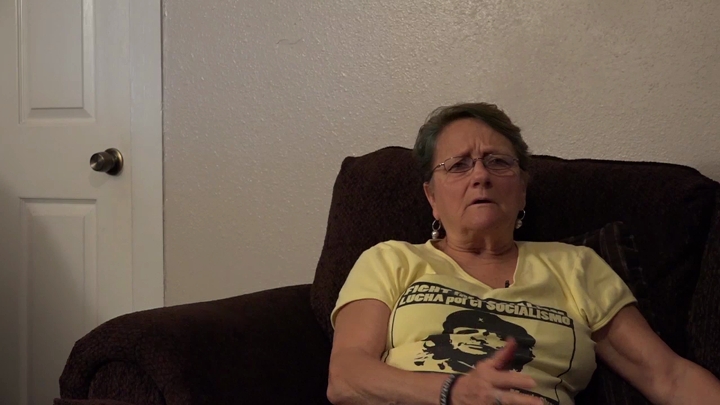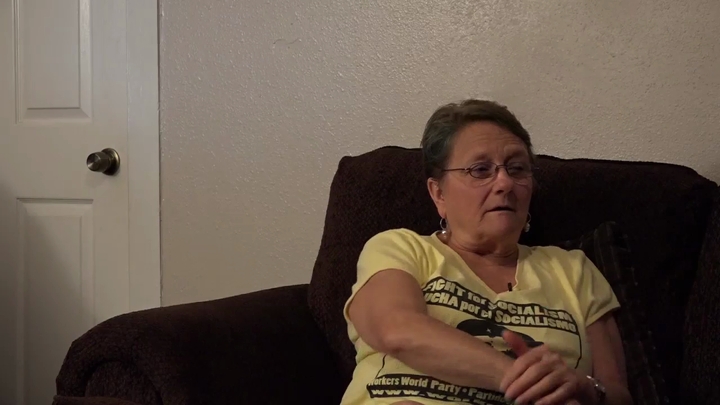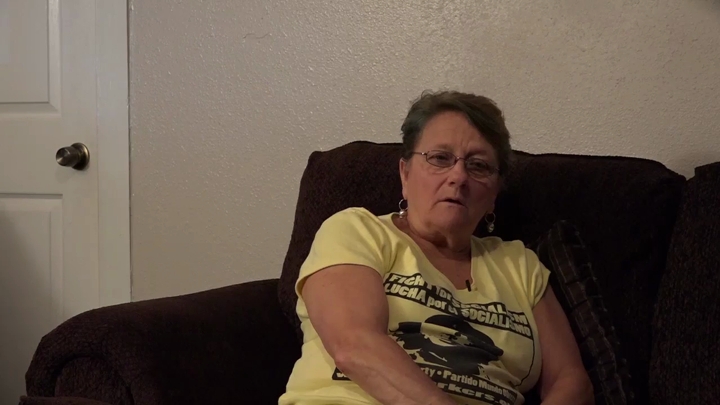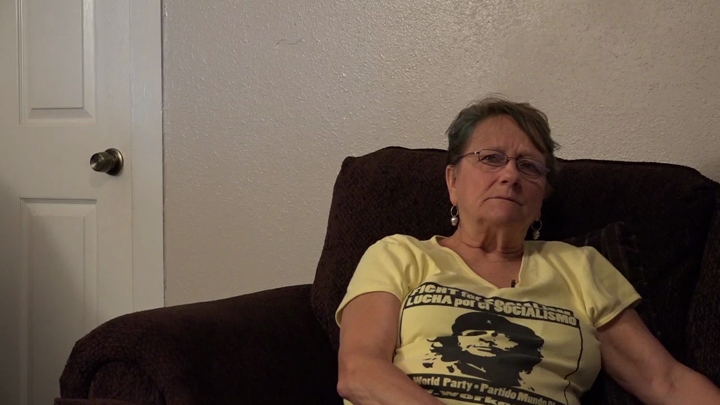Crear / The Work Behind the Party
sign up or sign in to add/edit transcript
Interviewer: Can you talk a little bit about the connection between what was going down in Houston and what was happening in Oakland or in L.A., the chapters in California? Crear: It was the same thing. We were almost like McDonald’s. Any McDonald’s you go to across the country, you’re going to see the same thing and basically that’s how the party was. I meet comrades now that I never met from different chapters but we all got the same bond even after all these years. So, wherever you went, it was basically, you going to see the same thing, the same—because you know, our slogan was “All power to the people” but really what we lived by was serving the people, body and soul. So anywhere you went it was basically the same thing. A lot of people join the party because they saw the glamor. Just like now, people see us, they see the hype and the glamor. Once they realized it was hard work, it was adios because that’s what it was. It wasn’t—I was talking about the brother’s and sisters in this new Black Panther thing. They walked around, it’s all black. We didn’t walk around like that. You’ll see in films, yeah that was our—black beret, leather jackets, and blue, that’s our colors, powder blue. That was like for rallies or for special—but we didn’t wear that every day. We were just like the people. So, that’s what I’m saying, a lot of people saw the guns, saw the berets, “Oh yeah, I want to be that.” Like I said, once they realized it was hard work—because just like the breakfast program, we had to get up at five in the morning, preparing all these meals, then you’re serving all these kids, then you got to clean up. Then you had to go out in the field. We called the field—you might have to go out and sell papers, you might had to go out collecting donations, any number of things. So, it was work, you know. Interviewer: Did women and men both do the cooking and all that? Crear: Oh yeah. Yeah. Just like here—Comrade Ruby, she was like what we call—I don’t know why we called her that because we called her the OD which was Officer of the Day, but usually was the same person. So, if you came in the office, she would be behind the desk to greet you and ask you what you needed or whatever. She was—that was her duty. Her job was to take care of the office. You know, when Comrades came home, make sure we had meals or—but she would be the one that would greet you or answer the phone and the sisters went out and sold papers for—in fact, they were better paper sellers than the brothers to tell the truth. A lot of brothers would hit on them thinking they could get something more than just that paper but that wasn’t going to happen. I was talking to one of my comrades, Albert Woodfox, he just got out of prison after—he was in solitary confinement for almost forty-three years. He was part of the Angola three. He was telling me how he first came in contact with the party, he committed this petty crime in New Orleans, so he went up to New York, try to get away from it. So, when he got up there, that’s when he came in contact with the party, but he was looking at the women. He was like “These some fine (inaudible).” Pretty soon he realized that they wasn’t all about that. They was about living more than, you know, so.
| Interview | Interview with John Crear |
| Subjects | Community Organizations |
| Gender and Sexuality | |
| Student Activism | |
| Black Power › Black Panthers | |
| Community Organizations › Community outreach › Volunteering | |
| Tags | sign up or sign in to add/edit tags |
| Interview date | 2016-06-06 |
| Interview source | CRBB Summer 2016 |
| Interviewees | Crear, John |
| Interviewers | Enriquez, Sandra |
| Rodriguez, Samantha | |
| Locations | Houston, TX |
| Duration | 00:04:03 |
| Citation | "The Work Behind the Party ," from John Crear oral history interview with Sandra Enriquez and Samantha Rodriguez, June 06, 2016, Civil Rights in Black and Brown Interview Database, https://crbb.tcu.edu/clips/3496/the-work-behind-the-party, accessed February 25, 2026 |






